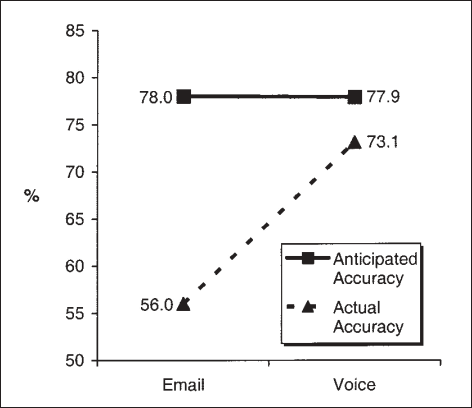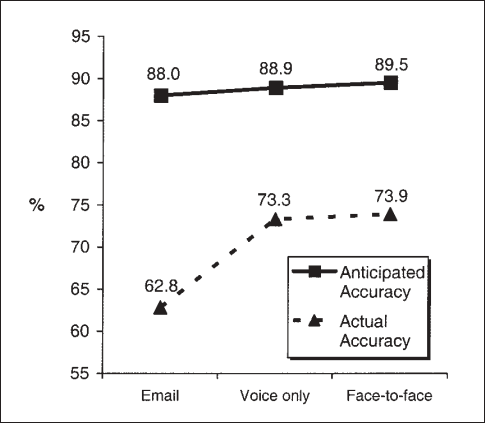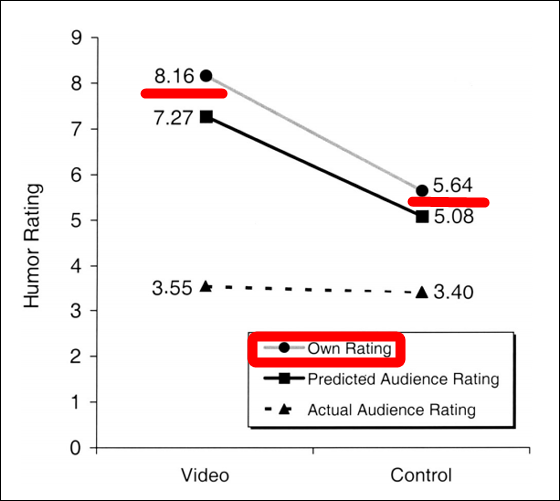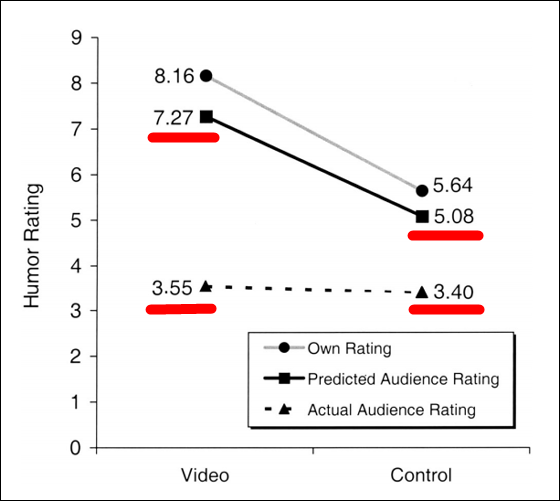Experiment demonstrates that people are confident that "emotion is not conveyed" by e-mail

ByChoo Yut Shing
E-mail (mail) that can be sent anytime and without cost anytime is very convenient, it is useful in business as well, some people now are almost finished by email rather than by phone. However, it is clear that it is far more difficult to convey your true intent by e-mail than you can imagine.
Egocentrism Over E-Mail: Can We Communicate as Well as We Think? .pdf
(PDF file)http://faculty.chicagobooth.edu/nicholas.epley/krugeretal05.pdf
In order to clarify the difficulty of communicating information by e-mails, research teams such as Professor Justin Krueger of New York University sent sentences with various emotions, such as serious content and sarcastic connotation Then we conducted an experiment on whether or not it will be transmitted correctly to the other party.
With 60 students studying psychology at Cornell University as test subjects, we divided 30 groups, each pairing two by two, into separate rooms and selected 10 items from 20 themes such as meal, life, weather So I tried to make half a story seriously and another half sarcastic to make a story and transfer it to a pair of opponents. To convey the story, adopting two kinds of methods, "mail" to send and "voice" brought in to the tape recorder, the nuance of "seriousness" and "irony" to each other accurately I will forecast in advance about whether it is transmitted.
As a result, as shown in the graph below, the subjects expected that about 78% of both e-mails and voices should be accurately transmitted, but in fact the mails and voices are actually accurately conveyed only to the extent that they are lower than expected Not found to be. Noteworthyly, the success rate of voice transmission was 73.1%, which is slightly lower than expected, whereas in e-mail, only 56%, which is much lower than expected, was correctly transmitted. In other words, it is obvious that the ability to communicate emotions correctly (transmission power) tends to be overconfident regardless of mail / voice and transmission means, and that emotion is not correctly conveyed by e-mail more than imagined That is why.

Next, experiments were carried out by adding a transmission method in "face-to-face" that talks by looking at the face of the other party in addition to mail and voice. Experiments that tried three different transmission methods are similar to the previous experiments in that a pair of two students from the University of Illinois studied as 154 subjects was the same as the previous experiment and furthermore, "pairs of strangers" and "strangers Two pairs of "pair of" were targeted.
Experimental results are shown in the graph below. Although it was as expected by the researchers' team that the face-to-face case has the highest transmission success rate, surprisingly there is no big difference in the results of "face-to-face" and "voice only". On the other hand, in the case of e-mails as well, the results showed that it was difficult to communicate emotions correctly. Since there is no significant difference in the experimental results between pairs of strangers and strangers, it has also become clear that 'intimacy of relationships' does not affect the correct transmission of emotions I will.

It is also experimented whether seriousness · sarcasm plus "humor" will be transmitted. With 58 subjects at Cornell University as subjects, Jack Handy's humorous short sentence "Deep Thoughts10 works ofon mailI received it and read it, half of the subjects read the same email after reading the same workSaturday Night LiveExperiments were conducted on the condition that it showed in the video of the other half, and showed nothing to the remaining half subjects (only e-mail). After that, when subjects gave scores of up to 11, fun at least 1 in the interestingness (humorous) of 10 pieces shown in the show Deep Thoughts, the average score of those who saw the video complementarily was 8.16 The average score of those who saw the work only by e - mail became a low score of 5.64. In other words, humorousness is hard to understand with e-mail alone.

In addition, we asked 5 subjects from among the works we saw to other subjects using e-mails and predicted on how many points we could score, and in both cases we got a lower evaluation than expected It is clear that it is difficult to communicate humor with e-mail because it is not possible to do.

The reason why the emotion was not successfully conveyed by e-mail is that information on the context is missing because it is difficult to express "external information" that can be used when talking face to face, such as facial expressions and accented / It is thought that. For this reason, the person who received the mail fills out the contiguous and empty context by itself, so that misunderstanding can occur.
In addition, it is thought that it is also caused by not being able to read comprehension degree from the expression etc of the opponent by e-mail. The technical problem of being unfamiliar with mail operation is that all students' subjects are excluded from being able to send and receive mails.
From this research, it turned out that it is difficult to accurately communicate emotions with e - mails beyond imagination. In addition, it is also clear that it is prone to overconfidence that often tends to be "accurately conveyed". With the communication means such as e-mail which is difficult to read emotions and real intention, "breathing of birth" can not be expected and it seems to be said that attention is necessary to successfully communicate regardless of purpose such as private business.
Related Posts:







